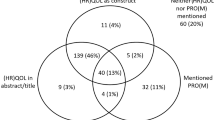Abstract
In order to assess quality of life, we administered the Child Health Questionnaire (CHQ) to 43 pediatric patients diagnosed with cystic fibrosis (CF). Statistical analyses demonstrated that girls with CF perceive themselves to have better general health and report greater optimism regarding their future health than do boys with CF. Findings also revealed that age negatively correlated with general health perception, such that patients report worse general health as they become older. In addition, we administered the parent version of the CHQ to one of each patient's parents for the purpose of comparing their perceptions to those of their children. Results indicated that in each of the domains assessed parents perceive their children to experience greater impairment than that reported by patients. Finally, comparisons of parents' perceptions of the quality of life (QOL) of their children with CF versus parents' perceptions of the QOL of their children who have other chronic illness revealed variable patterns of impairment.
Similar content being viewed by others
REFERENCES
Aiken, R. D. (1994). Quality-of-life issues in patients with malignant gliomas. Seminars in Oncol. 121(2): 273–275.
Cystic Fibrosis Foundation (1998). Patient Registry 1997 Annual Data Report. Bethesda, Maryland.
Hamer, L., and Parker, H. W. (1996). Treatment of cystic fibrosis in adults. Am. Fam. Physicians 54: 1291–1297.
Landgraf, J. M., Abetz, L., and Ware, J. E. (1996). Child Health Questionnaire (CHQ): A User's Manual. New England Medical Center, The Health Institute, Boston, MA.
Patrick, D. L., and Deyo, R. A. (1994). Generic and disease-specific measures in assessing health status and the quality of life. In Mezzich, J. E., Jorge, M. R. et al. (eds.). Psychiatric Epidemiology: Assessment Concepts and Methods. The Johns Hopkins Series in Psychiatry and Neuroscience. Johns Hopkins University Press, Baltimore, MD.
Ware, J. E., Snow, K. K., Kosinski, M., and Gandek, B. (1993). SF-36 Health Survey: Manual and Interpretation Guide. New England Medical Center, The Health Institute, Boston, MA.
Weitzner, M. A., Meyers, C. A., and Byrne, K. (1996). Psychosocial functioning and quality of life in patients with primary brain tumors. J. Neurosurg. 84: 29–34.
Weitzner, M. A., Meyers, C. A., Gelke, C. K., Byrne, K. S., Cella, D. F., and Levin, V. A. (1995). The Functional Assessment of Cancer Therapy (FACT) Scale: Development of a brain subscale and revalidation of the general version (FACT-G) in patients with primary brain tumors. Cancer 75(5): 1151–1161.
Author information
Authors and Affiliations
Rights and permissions
About this article
Cite this article
Epker, J., Maddrey, A.M. Quality of Life in Pediatric Patients with Cystic Fibrosis. International Journal of Rehabilitation and Health 4, 215–222 (1998). https://doi.org/10.1023/A:1022962728653
Issue Date:
DOI: https://doi.org/10.1023/A:1022962728653




